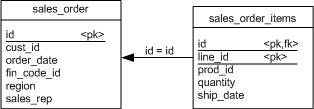All MobiLink clients enforce referential integrity when they incorporate the download into the remote database.
Rather than failing the download transaction, by default the MobiLink client automatically deletes all rows that violate referential integrity.
This feature has the following benefits:
MobiLink clients provide notification if they have to explicitly delete rows to maintain referential integrity, as follows:
If you want synchronization to fail when the warning is raised, you must implement a synchronization observer and then signal the observer (perhaps through a global variable) from the error callback function. In this case, synchronization fails on the next call to the observer.
The MobiLink client incorporates changes from the download in a single transaction. To offer more flexibility, referential integrity checking occurs at the end of this transaction. Because checking is delayed, the database may temporarily pass through states where referential integrity is violated. This is because rows that violate referential integrity are automatically removed before the download is committed.
Suppose that an UltraLite sales application contains the following two tables. One table contains sales orders. Another table contains items that were sold in each order. They have the following relationship:

If you use the download_delete_cursor for the sales_order table to delete an order, the default referential integrity mechanism automatically deletes all rows in the sales_order_items table that point to the deleted sales order.
This arrangement has the following advantages:
For SQL Anywhere clients, you can use the sp_hook_dbmlsync_download_ri_violation client event hook to handle the referential integrity violation. Dbmlsync also writes an entry to its log.
See:
| Send feedback about this page via email or DocCommentXchange | Copyright © 2008, iAnywhere Solutions, Inc. - SQL Anywhere 11.0.0 |